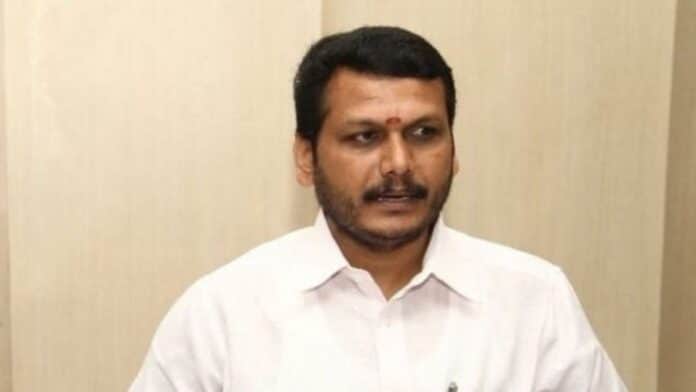Senior Counsel Kapil Sibal on Tuesday informed the Madras High Court that the Enforcement Directorate cannot seek police custody beyond the period of 15 days from the date of arrest, when the habeas corpus petition filed by Minister Senthil Balaji’s wife came up for hearing before Justice C V Karthikeyan.
Sibal, appearing for Megala, wife of DMK Minister Balaji, submitted that the Enforcement Directorate cannot seek exclusion of the period of medical treatment taken by Senthil Balaji, for the purpose of taking him into police custody.
He said Senthil Balaji was remanded in judicial custody and thereafter the ED obtained an order of 8 days’ police custody. But they did not execute the order. Hence, they cannot again seek police custody after a period of 15 days. Senthil Balaji is now in judicial custody. If the ED wanted to interrogate him, they could still do it while he is in judicial custody, Sibal argued.
There was no necessity to seek police custody, he added.
Citing several judgments of the Supreme Court, Sibal said the ED has no power to seek police custody, because the ED officers were not police officers.
Under the Prevention of Money Laundering Act, the ED has to investigate the laundering if the detenue is in possession of the property. In this case, there is no prima facie material to show that Senthil Balaji is in possession of the property. Therefore, the ED cannot arrest him, he said.
He said the PMLA is a unique statute empowering the ED to arrest, but on the condition that they have material evidence and there are reasons to believe that the detenue is guilty of an offence. Moreover, orally conveying the grounds of arrest is not sufficient. The grounds of arrest should be served on the accused, he added.
On June 15, 2023, the high court said Senthil Balaji was still in judicial custody, he said.
However, on the same day, the ED moved the sessions judge and obtained an order of police custody, which was bad in law. The ED could have moved the HC to interrogate him in the hospital, where he was taking treatment, he said, adding that the ED could have asked the hospital to shift Senthil Balaji to the next room and remove the security guards and interrogate him.
Even the doctors did not object to the interrogation in the hospital itself. They only said the ED can interrogate him but when he becomes tired, they should leave him alone. But the ED did not choose to do it, he added.
Senior Counsel N R Elango, appearing for Balaji, said the HCP is maintainable.
The arrest itself was illegal because the ED authorities themselves admitted that Senthil Balaji was cooperating all along during the search but subsequently the ED said he was arrested because he did not cooperate with the investigation and he was intimidating the officers, Elango said. Moreover, the procedure to be followed during arrest was not adhered to in this case, he added.
Also Read
He said the remand is also illegal because the sessions judge had failed to apply her mind while remanding him.
Before Balaji was remanded an objection petition was filed. But without considering the same, the sessions judge mechanically remanded him and thereafter rejected the objection petition. Moreover, without giving an opportunity of hearing the objection petition, the remand order was passed and hence the remand is illegal. Therefore, the HCP is maintainable, he added.
Solicitor General Tushar Mehta, appearing for the ED, will put forth his arguments on Wednesday.




